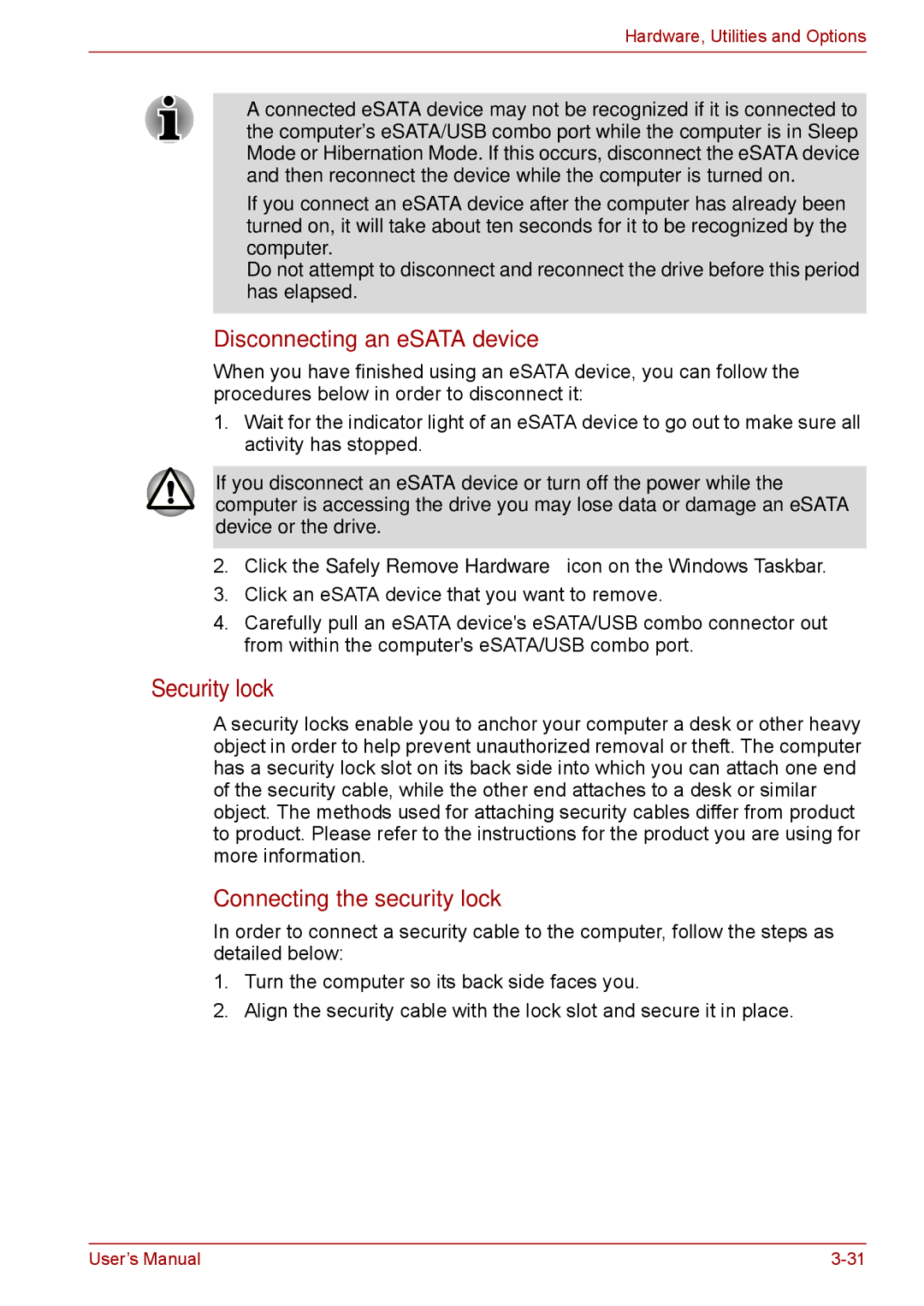
Hardware, Utilities and Options
■A connected eSATA device may not be recognized if it is connected to the computer's eSATA/USB combo port while the computer is in Sleep Mode or Hibernation Mode. If this occurs, disconnect the eSATA device and then reconnect the device while the computer is turned on.
■If you connect an eSATA device after the computer has already been turned on, it will take about ten seconds for it to be recognized by the computer.
Do not attempt to disconnect and reconnect the drive before this period has elapsed.
Disconnecting an eSATA device
When you have finished using an eSATA device, you can follow the procedures below in order to disconnect it:
1.Wait for the indicator light of an eSATA device to go out to make sure all activity has stopped.
If you disconnect an eSATA device or turn off the power while the computer is accessing the drive you may lose data or damage an eSATA device or the drive.
2.Click the Safely Remove Hardware icon on the Windows Taskbar.
3.Click an eSATA device that you want to remove.
4.Carefully pull an eSATA device's eSATA/USB combo connector out from within the computer's eSATA/USB combo port.
Security lock
A security locks enable you to anchor your computer a desk or other heavy object in order to help prevent unauthorized removal or theft. The computer has a security lock slot on its back side into which you can attach one end of the security cable, while the other end attaches to a desk or similar object. The methods used for attaching security cables differ from product to product. Please refer to the instructions for the product you are using for more information.
Connecting the security lock
In order to connect a security cable to the computer, follow the steps as detailed below:
1.Turn the computer so its back side faces you.
2.Align the security cable with the lock slot and secure it in place.
User’s Manual |
